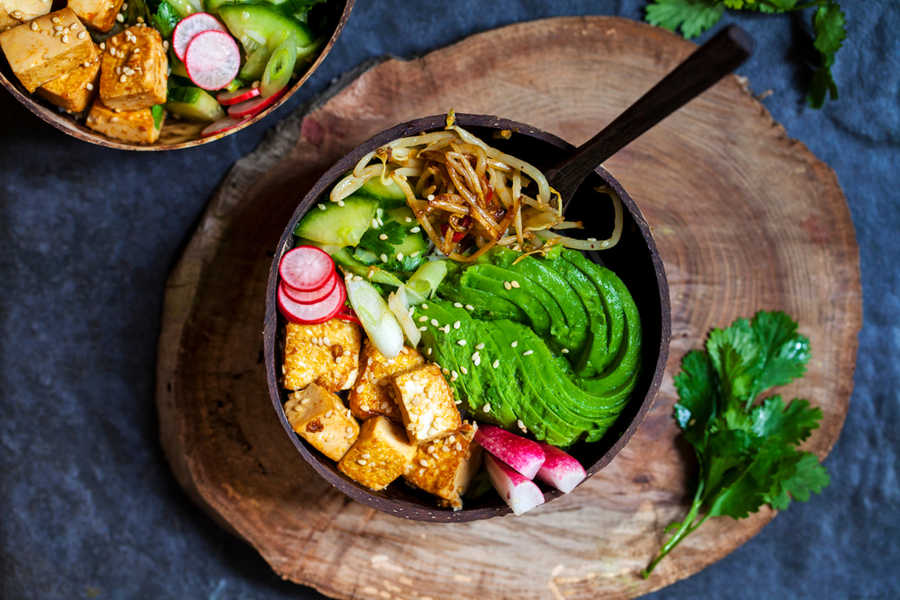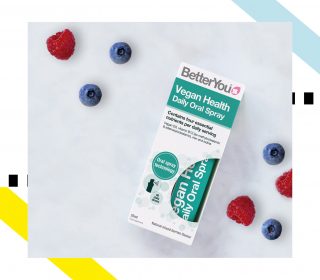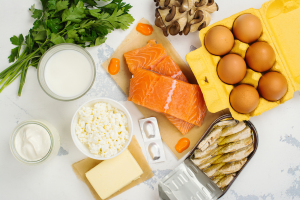6 naturally vegan foods to stock up on…

Following a plant-based diet might be easier than you think thanks to these naturally vegan foods.
Navigating the world of plant-based eating can sometimes feel like a minefield. While the health, environmental, and ethical benefits of going vegan are well-documented, knowing what you can and can’t eat without scrutinising labels can be a challenge. But here’s the good news: there are plenty of surprising foods that are already vegan without even trying. From old-school staples to unexpected treats, here are some naturally vegan heroes you’ll love—no compromises needed.
1. Marmite
Ah, Marmite. The yeast extract spread that’s synonymous with Britain’s love-it-or-hate-it debate. Vegans rejoice: Marmite is entirely animal-free! Made from yeast leftover from brewing beer, it’s not only vegan but also a nutritional powerhouse. Just one serving (5g) provides 50% of your recommended daily intake of vitamin B12 – a crucial nutrient often lacking in plant-based diets. That’s a good excuse to slather it on your toast or mix it into recipes for a savoury kick.
2. Guinness
Beer lovers, raise a glass. While many traditional beers use isinglass (a fish-derived substance) for filtration, Guinness removed it from their brewing process back in 2018. Their iconic ruby-red stout is now 100% vegan-friendly, meaning you can enjoy a pint guilt-free. Plus, moderate beer consumption (emphasis on moderate) has been linked to improved heart health and bone density—who knew?
3. Ritz Crackers
If you’ve ever marvelled at the buttery taste of Ritz crackers, here’s a revelation: there’s no butter in them at all. In fact, they’re made with soybean oil and natural flavours, making them an accidental vegan snack. Perfect for pairing with vegan cheese or topping with your favourite plant-based spread, they’re a pantry staple you can always rely on.
4. Starburst
Sweets can be a minefield for vegans due to the prevalence of gelatine (derived from animal collagen) and carmine (a red dye made from crushed insects). Thankfully, Starburst is a rare exception. These chewy, fruity delights are free from gelatine and carmine, making them a nostalgic treat for everyone, regardless of dietary preferences.
5. Dried Pasta
Not all pasta is created equal. While fresh pasta often contains eggs, most dried pasta is delightfully simple: just semolina flour and water. This means classics like spaghetti, penne, and fusilli are already vegan. Pair them with a tomato-based sauce or a creamy cashew alfredo, and you’re in for a comforting, cruelty-free meal.
6. Doritos
Here’s one that might surprise you: some flavours of Doritos are vegan. While varieties like Nacho Cheese are off-limits, Chilli Heatwave, Lightly Salted, and BBQ & Chilli pass the test. The catch? They’re not labelled vegan due to being made in facilities that handle animal products. But if you’re okay with that, it’s nacho time!
IS IT VEGAN?
Not always – these products might catch you out

CANDLES
Certain candles contain tallow (animal fat) or stearic acid derived from animal sources. For a truly vegan glow, opt for soy wax or plant-based alternatives.

PAINT
Believe it or not, some paints are made with milk protein binders or beeswax. Look for “cruelty-free” and vegan-certified labels when redecorating.

CRAYONS
Remember the smell of crayons from childhood? That’s beef fat. Vegan-friendly art supplies are widely available, so stock up if you’re feeling creative.
The rise of veganism in the UK
Veganism is on the rise across the UK, and the numbers speak volumes. According to research by Finder in 2024, there are now 2.5 million vegans in the UK, representing 4.7% of the adult population. This marks an increase of 1.1 million individuals between 2023 and 2024.
This surge in veganism is particularly prominent among younger adults. Surveys indicate that individuals aged 18 to 34 are more likely to adopt a vegan diet, with women in this age group leading the trend. The UK’s market for meat substitutes is also thriving, now valued at over one billion euros – making it the largest in Europe.
What’s driving this shift? For many, it’s the environmental impact. Studies show that a vegan diet reduces greenhouse gas emissions by up to 73% compared to a meat-heavy diet. Add to that the health benefits—lower cholesterol, reduced risk of heart disease, and better weight management – and it’s easy to see why plant-based eating is no longer a niche movement.
Pro tips for a seamless transition
If you’re considering going vegan, here are some tips to make the journey easier:
- Start small. Incorporate one vegan meal per day or go meat-free on Mondays. Gradual changes are easier to sustain.
- Get adventurous. Experiment with plant-based recipes and discover new favourites.
- Read labels. You’ll be surprised how many products are accidentally vegan.
- Supplement wisely. Vitamin B12 and omega-3s are key nutrients to monitor. Fortified foods or supplements can help.
- Join a community. Social media is teeming with vegan groups, recipes, and support networks to keep you inspired.
A word on imperfection
Remember, veganism isn’t about being perfect; it’s about making choices that align with your values whenever possible. Even small steps can make a big impact, both for the planet and for your health. So whether you’re diving in headfirst or just dipping your toes, give yourself a pat on the back for trying.
Going vegan doesn’t mean giving up your favourite foods. From Marmite to Starburst, plenty of pantry staples are already on your side. And with the UK leading the charge in plant-based innovation—like meat alternatives from brands such as Quorn and Beyond Meat, dairy-free cheeses that actually melt, and even vegan-friendly chocolate – the future looks brighter – and tastier – than ever.












